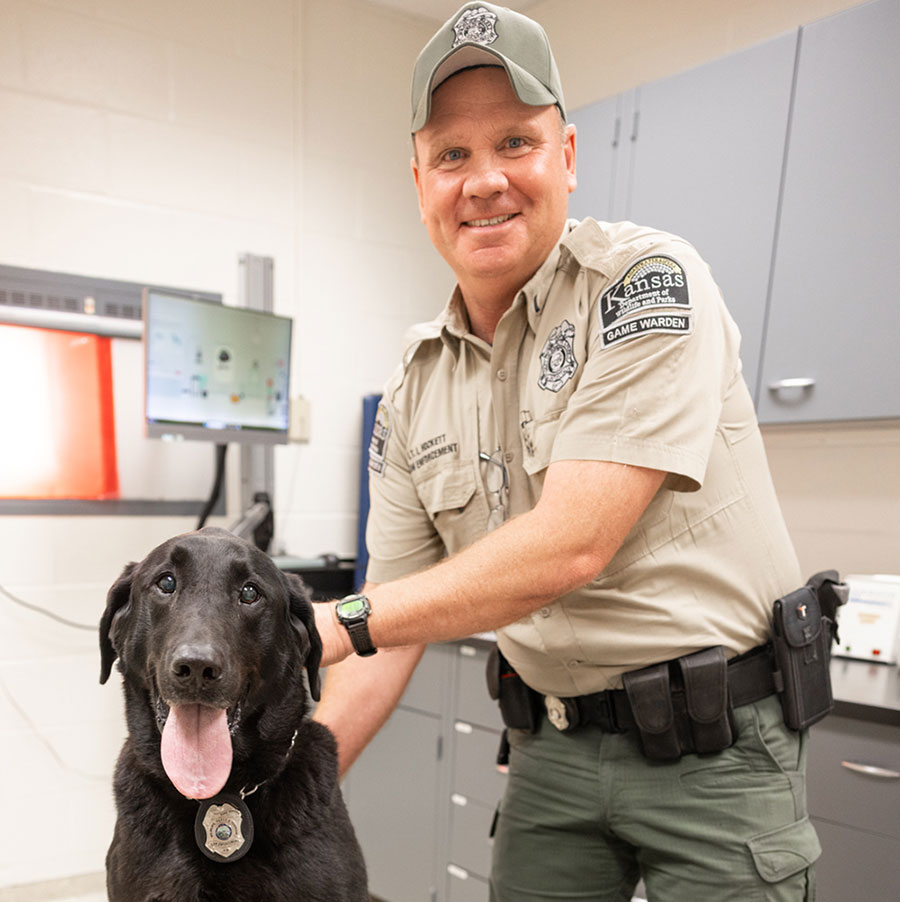K-State veterinarians perform eye exams for service animals
Ophthalmalogy team goes on the road
Lt. Lance Hockett stand with Kodak, a wildlife detection dog. Kodak was one of 60 dogs that recieved eye exams in May 2025.
The Ophthalmology team at Kansas State University’s Veterinary Health Center saw a variety of service patients during the ACVO National Service Animal Volunteer Eye Screening Event in May. This was the service’s 16th year to participate in the national event, which provides complimentary eye exams for service and working animals each May.
Over the span of the month, the team comprised of Drs. Jessica Meekins and Amy Rankin, both professors of ophthalmology along with veterinary nurses, Jennifer Klingele and Jordyn Orrison, saw a total of 60 service and working military dogs. These included dogs enlisted in the service of military, search and rescue, wildlife law enforcement, a fire department arson detection, school therapy, and seeing eye dogs. Appointments were both in-hospital and off site. Off-site visits included Kansas Specialty Dog Service, or KSDS, in Washington, the Sedgwick County Emergency Management Search and Rescue, McConnell Air Force Base and Fort Riley.
“Regular eye exams are a proactive step in protecting the vision and overall eye health of our police working dogs,” says Lt. Lance Hockett, Kansas Department of Wildlife and Parks. “It ensures they stay mission-ready and their handlers can work with them safely and effectively.”
Lt. Hockett oversees a team of 10 wildlife detection dogs and handlers of which all dogs received an exam during the annual eye event.
“It’s an honor to provide screening eye exams to the animals that give so much to their owners and handlers,” said Dr. Meekins. “We look forward to providing this service every year and are very excited that the word is spreading in the community to increase registration.
During the complete eye exam, Drs. Meekins and Rankin look for problems including redness, squinting, cloudy corneas, retinal disease, early cataracts and other serious abnormalities. Early detection and treatment are vital for these animals.
Those interested in scheduling an appointment during next year’s event should watch for registration to open in April 2026.